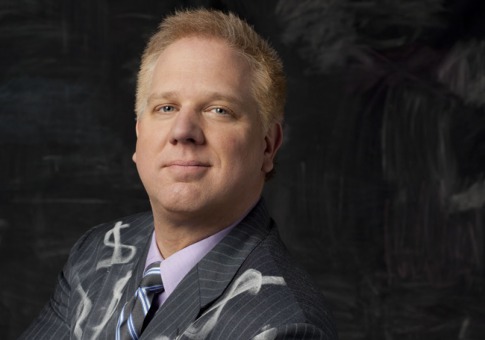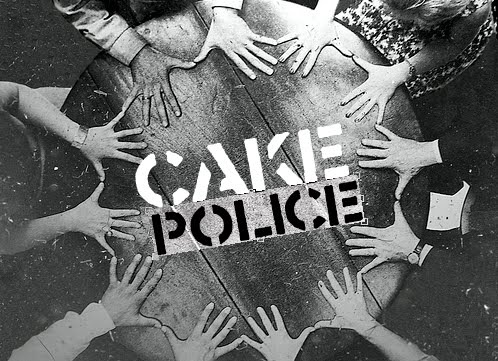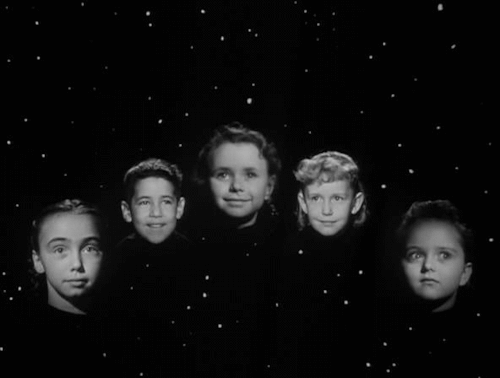Tuesday, August 31, 2010
Saturday, August 28, 2010
DOUG HENWOOD: It's not like, you know, the 1930s, when the whole financial landscape was reorganized and tightly regulated, and we're not seeing anything remotely like that now. And even the ideological environment hasn't changed all that much. I mean, at the elite levels, nobody has, really, a problem with Wall Street. And, you know, a friend of mine said the other day, I don't understand why Wall Street isn't burning. You know, there's just—the level of popular rage is quite low, the prestige of labor unions, Gallup just reported the other day, very low. It's as if the consciousness of the American public is the private sector's basically correct in its wage-setting and the public worker is overpaid. It's not that, you know, the private sector's greedy and driven by maximization of profit and the public sector workers really should be a model for all of us. That's not the way we think. So one of the things that has surprised me about this crisis, as I thought that we would at least see some beginning of an ideological renovation, that even if there are a lot of obstacles towards material change in this country, but I thought at least people will start thinking and seeing things differently. It doesn't seem to have happened, at least in any visible way.
PAUL JAY: Well, maybe that's the word, "visible" way, because maybe it's not breaking through because the media doesn't want to report on it.
HENWOOD: Yeah. But there's also really no organized expression of it, either. You know, the most visible expression of discontent are the lunatics who are wearing tea bags on their heads and who think that Obama is a Kenyan-born Muslim socialist. And it's—certainly the media focus on those people. That is their choice. But it also—you know, this is kind of consonant with the whole tradition in American history of having an activist, crazy right wing.
JAY: But you have to blame the left as not able to inspire people. It's the—.
HENWOOD: No, the left has been very absent, and I think there are any number of reasons for that, you know, going back to the collapse of the Soviet Union leaving the left worldwide feeling very demoralized, and we don't really know what to think or do, we don't really have a good agenda. But also I think there's a special situation that the more respectable left, the part with some access to power, was so entranced by the fact that a Democrat won the White House, there's just this vast sense of relief that, you know, at least our guy is in there. And so the unions were perfectly willing to cut him a lot of slack during the health-care debate.
JAY: And still do.
HENWOOD: And still do. So as long as that kind of organized, respectable left is so demobilized, so defanged, so disarmed, then we're not going to get anywhere.
Friday, August 27, 2010
Thursday, August 26, 2010
Wednesday, August 25, 2010
the doctor says he needs a backeotomy

"One Ready Ape hit the ground and the impact knocked a word out of him . . . He spoke. In the Word was his beginning. He looked about and saw the world differently. He was one changed ape. I look about now and see this world differently. Colors are brighter and more intense—traffic lights at night glow like immense jewels. The ape became a man. It must be possible to become something more than a man."

"I Am the Artist when I Am Open. When I am closed I am Brion Gysin."

"The poets are supposed to liberate the words – not chain them in phrases. Who told the poets they were supposed to think? Poets are meant to sing and to make words sing. Writers don't own their words. Since when do words belong to anybody? 'Your very own words,' indeed! And who are you?"

"What are we here for? Does the great metaphysical nut revolve around that? Well, I'll crack it for you, right now. What are we here for? We are here to go!"
Tuesday, August 24, 2010

Sunday, August 22, 2010
have you ever seen a bird eat cheese?
1. We put bits of old cheese (cheddar) out front. Please notice how we spread them about to avoid any suspicion.

2. Ah, yes, our first customer. He places the cheese in his beak...

3. Could it be?! Will the pigeon eat the cheese?!

4. Rats! Should have known better! They drop the cheese in search of other treats.

5. Bastards walk away. Mission: FAILED.

Saturday, August 21, 2010
Friday, August 20, 2010
Thursday, August 19, 2010
NIRVANA MONDAY
"Science without religion is lame, religion without science is blind."
"The fanatical atheists are like slaves who are still feeling the weight of their chains which they have thrown off after hard struggle. They are creatures who - in their grudge against traditional religion as the 'opium of the masses' - cannot hear the music of the spheres."
“To assume the existence of an unperceivable being … does not facilitate understanding the orderliness we find in the perceivable world.”
"I want to know how God created this world. I am not interested in this or that phenomenon, in the spectrum of this or that element. I want to know his thoughts. The rest are details."
"I received your letter of June 10th. I have never talked to a Jesuit priest in my life and I am astonished by the audacity to tell such lies about me. From the viewpoint of a Jesuit priest I am, of course, and have always been an atheist.”
“Everyone who is seriously involved in the pursuit of science becomes convinced that a spirit is manifest in the laws of the Universe-a spirit vastly superior to that of man…. In this way the pursuit of science leads to a religious feeling of a special sort, which is indeed quite different from the religiosity of someone more naive."
“I’m not an atheist and I don’t think I can call myself a pantheist. We are in the position of a little child entering a huge library filled with books in many languages. The child knows someone must have written those books. It does not know how. It does not understand the languages in which they are written. The child dimly suspects a mysterious order in the arrangements of the books, but doesn’t know what it is. That, it seems to me, is the attitude of even the most intelligent human being toward God."
"It was, of course, a lie what you read about my religious convictions, a lie which is being systematically repeated. I do not believe in a personal God and I have never denied this but have expressed it clearly. If something is in me which can be called religious then it is the unbounded admiration for the structure of the world so far as our science can reveal it."
"I believe in a Spinoza's God who reveals himself in the harmony of all that exists, but not in a God who concerns himself with the fate and actions of human beings."
“The word God is for me nothing more than the expression and product of human weaknesses, the Bible a collection of honourable, but still primitive legends which are nevertheless pretty childish. No interpretation no matter how subtle can (for me) change this. These subtilised interpretations are highly manifold according to their nature and have almost nothing to do with the original text. For me the Jewish religion like all other religions is an incarnation of the most childish superstitions. And the Jewish people to whom I gladly belong and with whose mentality I have a deep affinity have no different quality for me than all other people. As far as my experience goes, they are also no better than other human groups, although they are protected from the worst cancers by a lack of power. Otherwise I cannot see anything ‘chosen’ about them.”
Wednesday, August 18, 2010
Tuesday, August 17, 2010
i used to get high and listen to the books
except that in between every frame of film this picture was spliced in

EDIT:
also, if you were wondering what the collective memory of the american hive is, i think this is a good estimate

On August 25, (2009) Brown was sentenced to five years of probation, one year of domestic violence counseling, and six months of community service; the judge retained a five-year restraining order on Brown, which requires him to remain 100 yards away from Rihanna, 10 yards at public events.
Brown is also set to star in the upcoming crime thriller Takers (released August 27th, 2010)

Monday, August 16, 2010
Acrosstic. you knew it in 3rd grade
Saturday, August 14, 2010
Wednesday, August 11, 2010
Charity.
WARREN BUFFETT ($40 billion in net worth, number 2 on the Forbes 400 list of richest Americans in 2009) says it was an "easy sell" to get 40 billionaires to join him in the "Giving Pledge"--a commitment by the super-rich to give away at least half of their wealth to charitable causes.
The pledge is a project of Buffett and Bill Gates ($50 billion, number 1). It was unveiled to a select audience of the super-rich elite at a secret meeting held in May 2009 in the President's Room at Rockefeller University in New York City--where one of the participants, financier David Rockefeller Jr. ($2.2 billion, number 147), seems to have an in.
Buffett and Gates' case basically came down to this: Anyone rich enough to get an invitation had far more money than they could possibly spend in their lifetime--more probably than even their wildest children could burn through. So why not donate the portion not already earmarked for more mansions, private jets and diamond-encrusted SUVs--and glory in the grateful thanks of the less fortunate to boot?
The initiatives spearheaded by Gates and friends, described so often as altruistic, but more often than not shaped by their political prejudices and organized according to their cherished free-market principles--what authors Matthew Bishop and Michael Green call "philanthrocapitalism"--have come to the fore at exactly the same time that government programs aiding working people and the poor, protecting the environment and advancing social goals have been cut back.These cuts have accelerated during the Great Recession, and their effects are devastating, as a recent New York Times article documented--public schools across Hawaii closed on 17 Fridays during the past school year to save money; the public bus system shut down in Clayton County, Ga., outside Atlanta; one-third of the streetlights switched off in Colorado Springs.
It's no secret what set the stage for these cuts--decades of conservative political domination in Washington, under Republicans and Democrats, which, among other projects, whittled away at the corporate and individual tax system, progressively starving the government of revenue at the federal, state and local level.
The portion of federal tax revenue coming from corporate taxes has fallen to below 10 percent, down from about 33 percent half a century ago. The crowning achievement of the tax-cutters, though, was Bush's two massive tax-break giveaways, at a cost of $1.3 trillion, whose benefits were enjoyed primarily by the already rich. That kind of money dwarfs what Gates and friends are promising to donate.
The tax cuts were justified by a generation's worth of smears against "big government" programs, allegedly administered by unthinking bureaucrats and benefiting the undeserving.
And now, here come the philanthrocapitalists, whose mega-fortunes were made that much bigger by Washington's tax-break mania, promising to contribute a fraction of what they took away during the past 30 years, but only if they get to call all the shots, because they know so much better than anyone else what's best.
As journalist Peter Wilby wrote in the Guardian: "If the rich really wish to create a better world, they can sign another pledge: to pay their taxes on time and in full; to stop lobbying against taxation and regulation; to avoid creating monopolies; to give their employees better wages, pensions, job protection and working conditions; to make goods and use production methods that don't kill or maim or damage the environment or make people ill."
---
Also, here's a cute video for dimwits of Zizek rapping about charity.
This a longer version of the passage he quotes from Oscar Wilde's "The Soul of Man Under Socialism":
The chief advantage that would result from the establishment of Socialism is, undoubtedly, the fact that Socialism would relieve us from that sordid necessity of living for others which, in the present condition of things, presses so hardly upon almost everybody. In fact, scarcely any one at all escapes.
Now and then, in the course of the century, a great man of science, like Darwin; a great poet, like Keats; a fine critical spirit, like M. Renan; a supreme artist, like Flaubert, has been able to isolate himself, to keep himself out of reach of the clamorous claims of others, to stand "under the shelter of the wall," as Plato puts it, and so to realise the perfection of what was in him, to his own incomparable gain, and to the incomparable and lasting gain of the whole world. These, however, are exceptions. The majority of people spoil their lives by an unhealthy and exaggerated altruism - are forced, indeed, so to spoil them. They find themselves surrounded by hideous poverty, by hideous ugliness, by hideous starvation. It is inevitable that they should be strongly moved by all this. The emotions of man are stirred more quickly than man's intelligence; and, as I pointed out some time ago in an article on the function of criticism, it is much more easy to have sympathy with suffering than it is to have sympathy with thought. Accordingly, with admirable though misdirected intentions, they very seriously and very sentimentally set themselves to the task of remedying the evils that they see. But their remedies do not cure the disease: they merely prolong it. Indeed, their remedies are part of the disease.
They try to solve the problem of poverty, for instance, by keeping the poor alive; or, in the case of a very advanced school, by amusing the poor.
But this is not a solution: it is an aggravation of the difficulty. The proper aim is to try and reconstruct society on such a basis that poverty will be impossible. And the altruistic virtues have really prevented the carrying out of this aim. Just as the worst slave-owners were those who were kind to their slaves, and so prevented the horror of the system being realised by those who suffered from it, and understood by those who contemplated it, so, in the present state of things in England, the people who do most harm are the people who try to do most good; and at last we have had the spectacle of men who have really studied the problem and know the life - educated men who live in the East End - coming forward and imploring the community to restrain its altruistic impulses of charity, benevolence, and the like. They do so on the ground that such charity degrades and demoralises. They are perfectly right. Charity creates a multitude of sins.
There is also this to be said. It is immoral to use private property in order to alleviate the horrible evils that result from the institution of private property. It is both immoral and unfair.






















